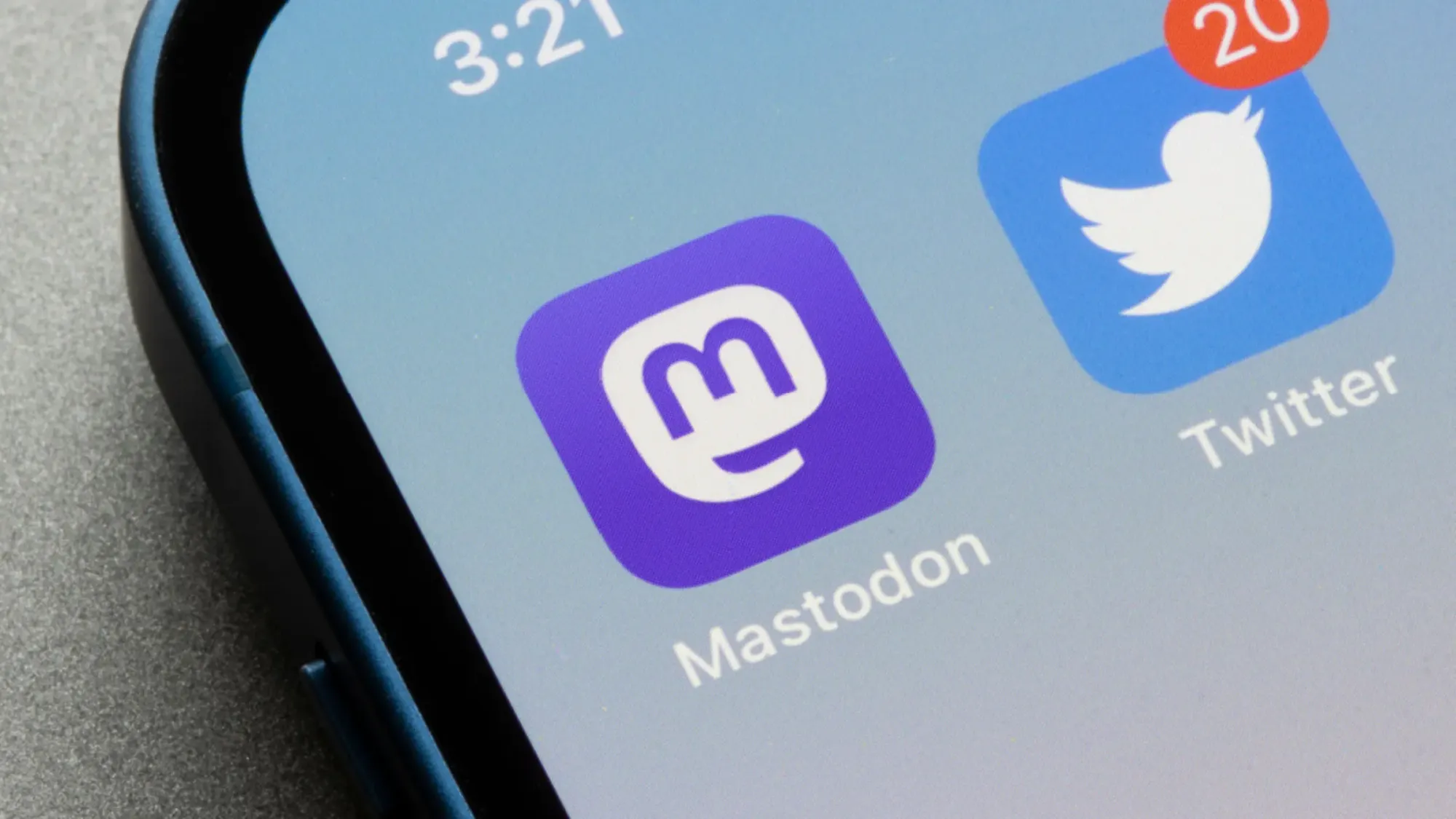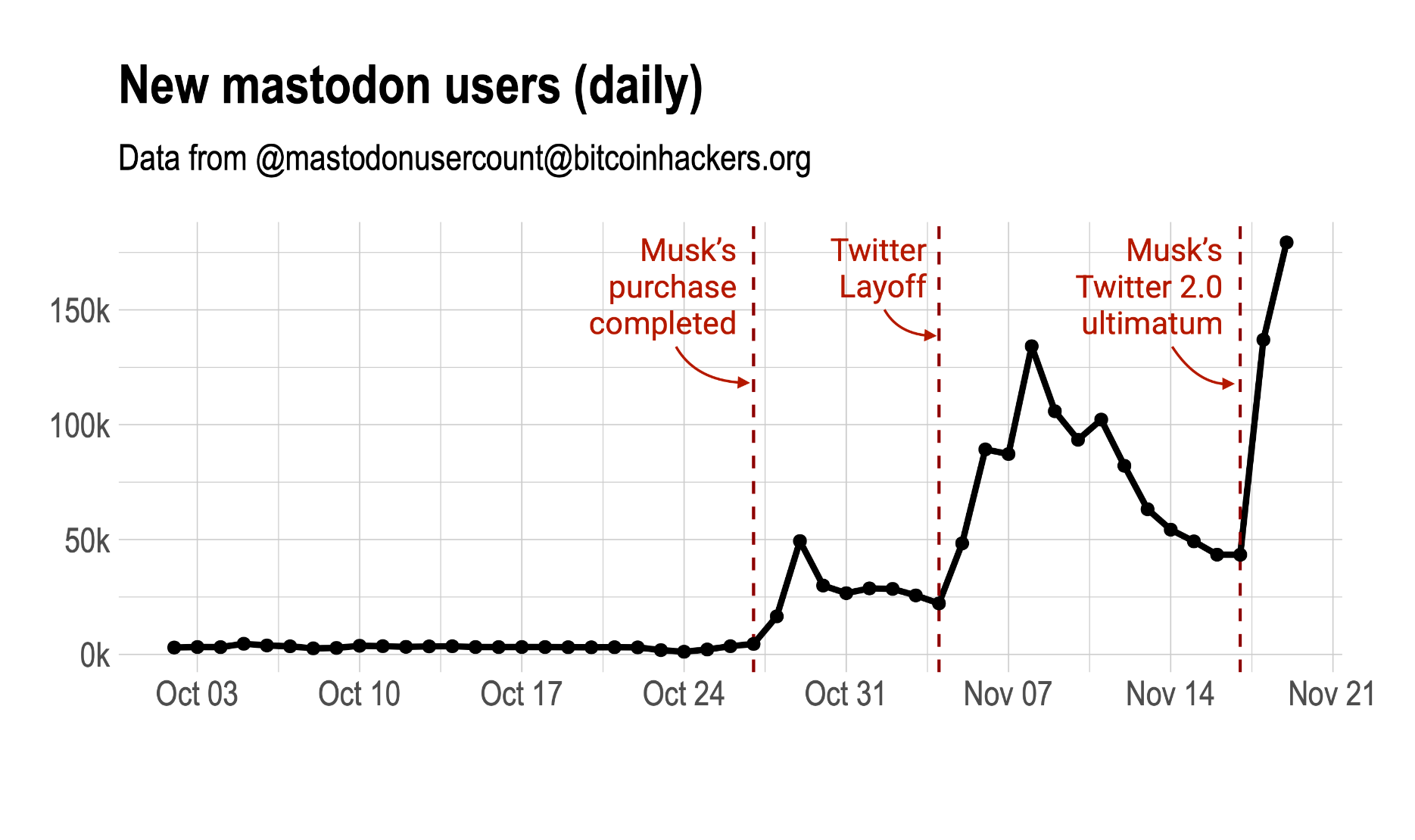Mastodon: Perhaps I was wrong?
Maybe, just maybe, there's hope for Mastodon as a Twitter replacement after all.

A few weeks ago, when discussing the seemingly imminent demise of Twitter, I dismissed Mastodon as being a likely replacement for Twitter given the difficulty of initially registering and having to choose an instance before you can get up and running.
However, on top of that, the app itself was unusable due to the influx of users, instances were slow as hell, and even the web interface was struggling to load.
I didn't dismiss Mastodon based on any of the performance issues. I've been around the web long enough to know that spikes in user activity based on something as colossal as Twitter is enough to bring down anyone, even the better prepared networks.
What's impressed me since though is that the network has adapted very quickly. That's particularly impressive given that, in a traditional sense, there is no platform. I'm going to stop myself from getting too technical and outline why, in fact, Mastodon might be the Twitter replacement everyone is looking for.
Oh, and Musk brought Trump back, so the need for a replacement has been expedited somewhat.
If you're familiar with Twitter, all you need to know is that Mastodon is like a lot of little Twitters that are all interconnected. There is no one central Mastodon website, no one central hub. Each "instance" of Mastodon runs on its own server, and has its own rules, but is connected to the wider federated network.

It's a little bit like the internet as a whole. No one "owns" the internet, but you can choose to join multiple websites that are part of it. Mastodon is exactly like that, except you're choosing between different Mastodon instances instead of different websites eg. Facebook, Instagram, and Google.
Another popular way of looking at is is like e-mail. There's plenty of different e-mail providers (Gmail, Hotmail, Outlook etc.) and you can send messages to anyone on any e-mail platform. But you can only log-in to your own one.
If that seems like an unnecessary headache when it comes to a social network, I understand why you might think that.
After all, centralised services like Twitter (where you're all just part of one massive Twitter deployment) do make things a little easier to get your head around. You don't have to pick where you join, you just join. When you tweet, you're just tweeting to the whole wide world. You want to find someone, you will find them 100% of the time unless they're blocked/banned for everyone. It's pretty simple, right?
But massive centralised services have their downsides. As we've witnessed in the past month, they can just be bought and taken over. Policies can be changed and you have zero say in that. Insurrectionists like Donald Trump can just be brought back, and there's nothing you can do about it.
In some ways, Mastodon is immune from much of this by virtue of its architecture. Because it's open source and built on a federated network, it can't really be bought. Sure, you could buy someone's Mastodon instance from them, but even then you'll only "own" a tiny portion of the network. You'd have zero control over the rest of the network. And if you wanted to buy everyone's Mastodon instances, you'd have to negotiate with tens of thousands of people rather than a board of directors. And even then, even if you did that, more people could just start new Mastodon instances without you.
In terms of policies, Mastodon instances have their own rules set by the owner/moderator of that instance. Some servers might block all pornographic material, or Nazi symbolism, or transphobic remarks. Others may take a more lax approach. Instead of trying to moderate or ban content on a global level, it's handled in each smaller community. These communities, the instances, can also stop accepting new sign-ups if they feel they have grown too large.
If Twitter deals with hate speech like Westminster passing legislation, Mastodon is more like it being dealt with in the local village hall. The idea is that it's quicker, fairer and moderation can be handled much more effectively.
There's also a great idea of community moderation that applies to the wider Fediverse (the term for the connected network of Mastodon instances). Mastodon instances can choose to block/limit posts from specific instances. So for example, if thousands of instances decided to block an instance that was full of neo-Nazi material, that neo-Nazi instance would, in practical terms, be cut off from the Mastodon fediverse. But that decision is in the hands of the individual instances, not a centralised content moderation team.
In theory, the way this network is built should allow for a much more democratic social media experience. There are, of course, vulnerabilities. If your instance were to be hijacked by fascists, for example, everything you've built up could be in jeopardy. However, you are free to move to other instances and get away from the new policies, if you prefer. That is at the crux of Mastodon – it's about your choice.
Don't get me wrong, it is messy. The official Mastodon app is a bit of a joke, and do most people really want to think about any of this? They probably don't, but what Mastodon is trying to do is highlight that you can have more control over your social media experience. It can be better for your mental health, and you don't have to be at the mercy of populist billionaire grifters like Elon Musk.
There's also the question of costs. Even though the costs of running Mastodon are effectively federated to the people running the instances, as it grows in popularity you have to wonder who is going to fund most of this? At the moment, the system relies on Patreon donations which seems to be effective so far in moving the network forward. There have to be questions about whether that can continue long-term without the need for advertising revenue. New users have now risen up to 180K per day, and overall users have passed 7 million. The trickle from Twitter is becoming an exodus.

The question of choosing an instance being a high bar to entry also still exists. I'd argue that this is mainly down to how you are asked to make the choice when joining, rather than the fact that you have a choice to make. The onboarding experience could be improved, it could be explained more clearly, and the choices displayed in a more user-friendly layout.
But I have to say, all in all, I've been surprised that this has taken off as well as it has. It's certainly (in my experience so far) a more welcoming, thoughtful and considered community. It does seem to have filtered the majority of the "Messi isn't even in the top 10 for me" click-bait football teenagers, and I'm not having far-right content rammed down my throat as Twitter seems to have decided to do lately. I'm enjoying it, more than I expected.
For anyone interested in giving me a follow, you can find me @chrismcquillan@mastodon.online
I'm planning on shutting down my Twitter account in the very near future as well, regardless of Mastodon's performance. If the only way you can vote is with your feet, I'll be doing so.

